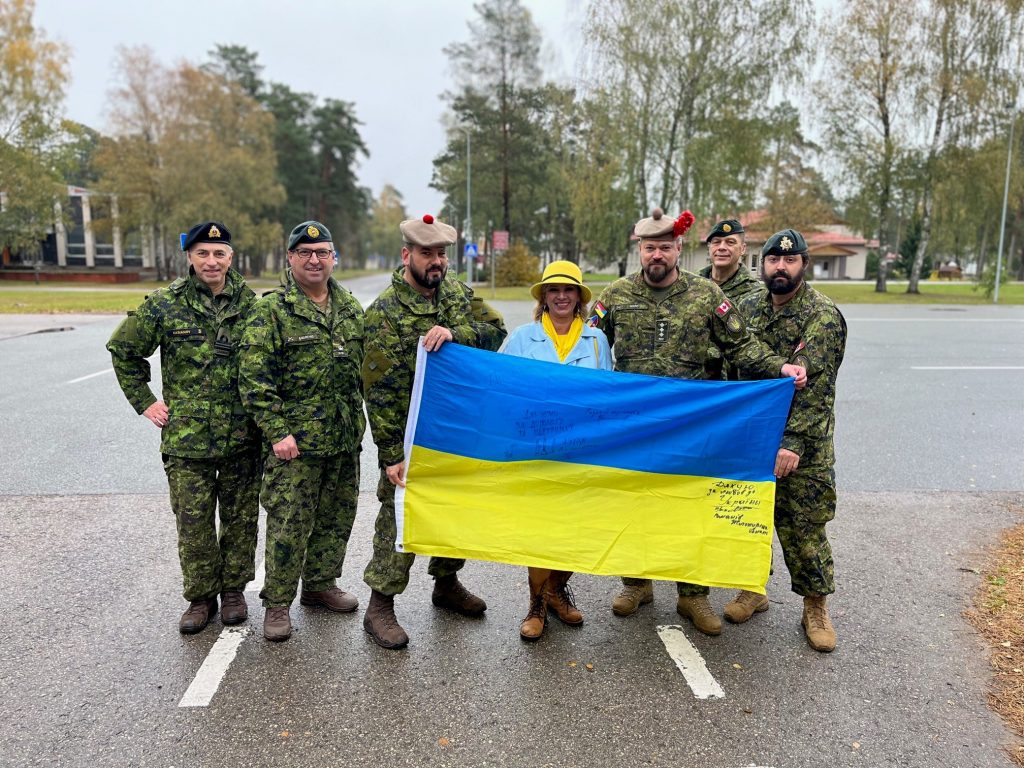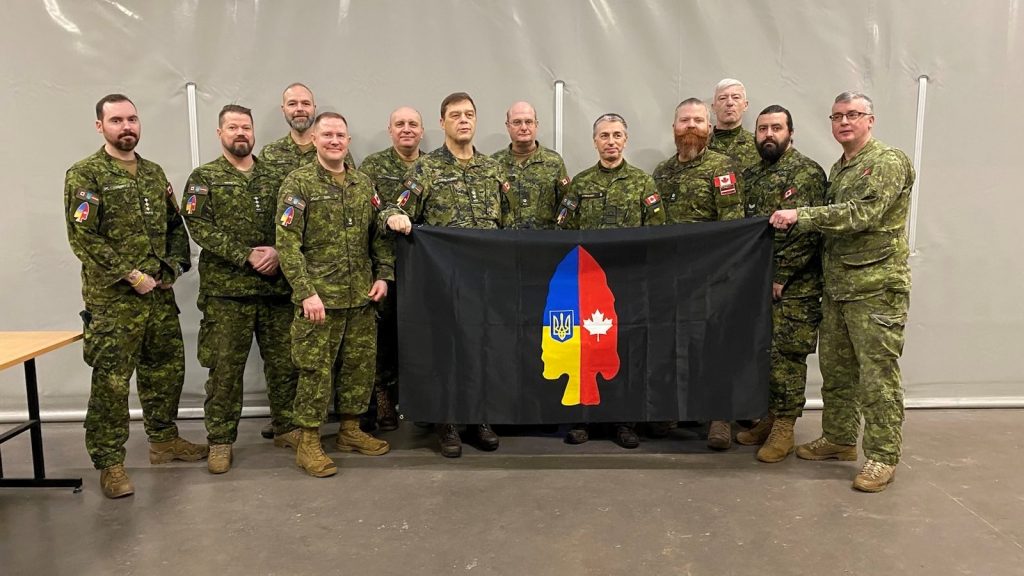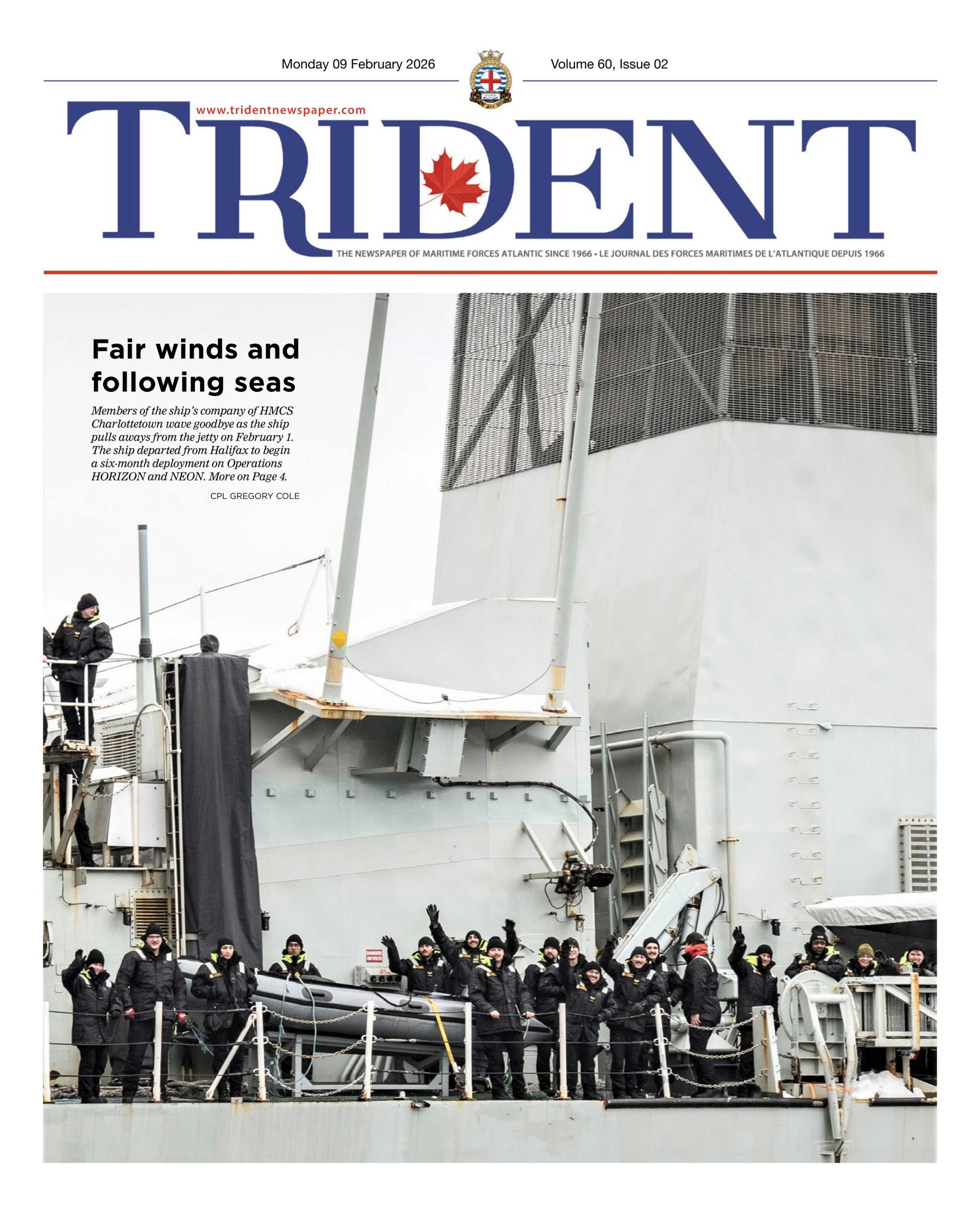
LCdr Kasianov reflects on training Ukrainian soldiers in Latvia
By Gabrielle Brunette,
Fleet Maintenance Facility Cape Scott
In June of 2023, Lieutenant Commander (LCdr) Paul Kasianov deployed on what would be an emotional, yet rewarding experience.
He would spend the next 6 months working as a Chief Linguist in Latvia as part of Operation Unifier – a military training and capacity building effort in support of Ukraine and their armed forces.
“I met doctors, I met engineers, I met teachers,” LCdr Kasianov said. “And now they’re fighting, and all of them are officers in the Ukrainian armed forces.”

LCdr Kasianov has been in the Royal Canadian Navy as a Marine Systems Engineer for 21 years. Born in Ukraine, he moved to Canada nearly 30 years ago. Deploying on Operation Unifier was a way for LCdr Kasianov to provide direct help to people who needed it, while also allowing him to reconnect with his Ukrainian roots.
Launched by the Canadian Armed Forces (CAF) in 2015, Operation Unifier was created at the request of the Ukrainian Government, who was seeking support after Russia’s annexation of the Crimean Peninsula. While the efforts to assist Ukraine with training were temporarily halted following the February 2022 full-scale Russian invasion, Operation Unifier remains active today in the United Kingdom, Poland, and Latvia.
LCdr Kasianov was flagged as a potential translator for the program early on, due to his linguistics profile: being both fluent in Ukrainian and Russian.
But the timing never felt right, both professionally and personally, to deploy on the mission. That is until 2023 – when LCdr Kasianov received another request to assist with Operation Unifier.
“When I received that email with the request for a linguist, I thought, ‘this is it. I can do this’,” he recalled.
Six weeks later, he was on a flight to Latvia.
In Latvia, the CAF have been working alongside the Latvian National Armed Forces to deliver Junior Officer Leadership Development training. The training provides Ukrainian Officers with the necessary tools to be able to defend their nation and regain sovereignty. Students of the program are given instructions on various military skills, from planning and executing operations to gathering intelligence.
“It’s a tool. It gives them the ability to do their job more efficiently. And that’s important,” LCdr Kasianov said.
As a Chief Linguist, LCdr Kasianov provided daily translation services to instructors and students. He was also responsible for various other tasks – from greeting the students on the first day to translating lecture slides.
While the training is typically taught over the course of several months in Canada, the Ukrainian Officers cycle through a condensed three-week session, training six days a week.
Once the three-week period is over, the students return to battle and a new group is cycled into the program. When a new group of students arrive, they often require support to deal with battle injuries, both physical and mental, in addition to their training.
“There were a lot of people who were coming from the front lines, directly from the trenches,” LCdr Kasianov said. “They are in an active fight. They are losing friends. They’re concerned about their families because they’re scattered all over the place.”
LCdr Kasianov noticed that while students tended to be more reserved during the first few days of training, they slowly began to open up, as the Canadian and Latvian instructors gained their trust.
The program was an emotional experience for everyone involved. LCdr Kasianov said many instructors described the experience as more than just training.
“You hear all kinds of stories, all kinds of examples, and you couldn’t be impartial. You get involved, you become part of that conversation, part of that emotion,” LCdr Kasianov explained.
Since 2015, the CAF has helped train more than 39,000 members of the Ukrainian military. Currently, there are more than 300 CAF members deployed on Operation Unifier across Europe. Canada and its international partners are committed to providing Ukraine with the support and training they require to continue fighting for their freedom and independence.






